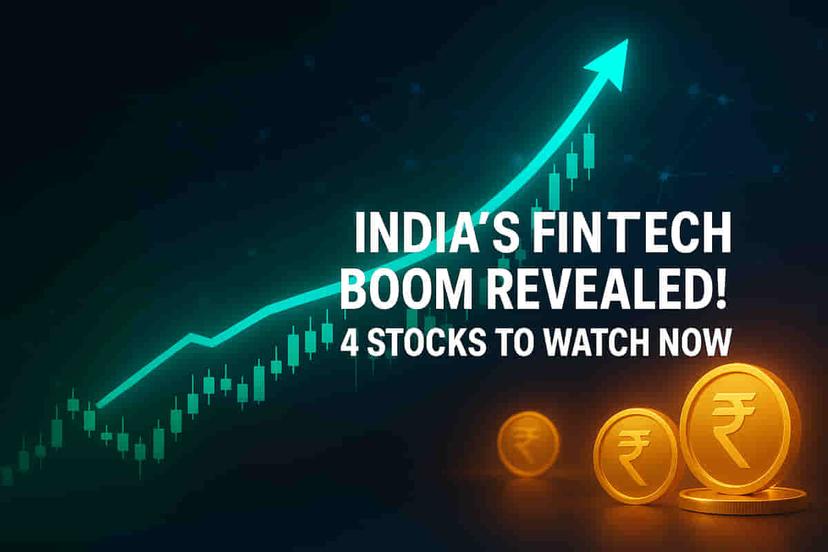Garment Stocks Skyrocket! Pearl Global & Indo Count Jump Double Digits on Stellar Q2 & Bullish Outlook – Investors Rejoice!
Textile
|
Updated on 12 Nov 2025, 08:27 am
Reviewed By
Satyam Jha | Whalesbook News Team
Short Description:

▶
Stocks Mentioned:
Detailed Coverage:
Pearl Global Industries and Indo Count Industries saw their share prices jump significantly, up to 14% and 12% respectively, during Wednesday's intra-day trading, propelled by substantial trading volumes and optimistic management statements post their Q2FY26 earnings announcements.
Pearl Global Industries reported a revenue of ₹1,313 crore and enhanced profitability. Its Adjusted EBITDA (excluding ESOP costs) was ₹122 crore, with margins at 9.3%, showing a year-on-year improvement of 108 basis points. The company is strategically reducing its dependency on the US market, which now contributes about 50% of its revenue, down from 86% in FY21, by expanding its presence in Australia, Japan, the UK, and the EU. Management is closely monitoring US tariff developments and is confident in its ability to adapt, expecting normalization in the coming quarters.
Indo Count Industries reported volume growth on a quarter-on-quarter basis. However, the company shared a portion of the additional tariff costs with customers, which impacted its margins for the quarter. Its EBITDA margins declined by 544 basis points year-on-year to 9.8%, affected by the scaling up of new businesses and lower gross margins. Core export volumes dipped 9% year-on-year, with realizations falling approximately 6% due to tariff-led uncertainties.
Prominent investor Mukul Mahavir Agrawal holds over a 1% stake in both Pearl Global Industries and Indo Count Industries. Brokerage firm ICICI Securities noted that Indo Count's core export business is under pressure due to ongoing tariff uncertainties, and the price discounts offered to customers affected overall realization growth. The potential signing of an India-US trade deal remains a key development to watch, as favorable tariff revisions could significantly benefit the Indian textile sector and enhance its market share in the US.
Impact: The positive quarterly results, coupled with strategic forward-looking commentary from management, have significantly boosted investor sentiment towards Pearl Global Industries and Indo Count Industries. This news underscores the sector's resilience and adaptability in managing global trade challenges, particularly tariffs. The future performance will likely be influenced by evolving international trade policies and agreements.
Impact Rating: 7/10
Difficult Terms: * **Intra-day trade**: Trading of a security or commodity within a single trading day. * **52-week high/low**: The highest or lowest price a stock has traded at over the past 52 weeks (one year). * **Equity shares**: Units of stock that represent ownership in a corporation. * **Trading volumes**: The number of shares of a security that are traded during a given period. * **Revenue**: The total income generated by the sale of goods or services related to the company's primary operations. * **Profitability**: The ability of a business to generate profit from its operations. * **Adjusted EBITDA**: Earnings Before Interest, Taxes, Depreciation, and Amortization, adjusted for specific non-recurring or extraordinary items. * **ESOP costs**: Costs associated with Employee Stock Option Plans. * **bps (basis points)**: A unit of measure equal to one-hundredth of one percent (0.01%). 108 bps = 1.08%. * **Y-o-Y (Year-on-Year)**: A comparison of current data with data from the same period in the previous year. * **Realization**: The actual price or amount received from a sale. * **FTAs (Free Trade Agreements)**: Agreements between two or more countries to reduce barriers to trade. * **QoQ (Quarter-on-Quarter)**: A comparison of current quarter data with data from the previous quarter. * **EBITDA margins**: Profitability metric calculated as EBITDA divided by revenue, expressed as a percentage. * **Core business volumes**: The primary quantity of goods or services sold in the company's main operational area. * **Brokerage firm**: A company that facilitates the buying and selling of securities for clients. * **Earnings call**: A conference call between a company's management and analysts to discuss financial results. * **Demand environment**: The overall conditions and trends affecting the demand for products or services.
Banking/Finance Sector

Indians Can Now Get Foreign Currency Digitally! NPCI Bharat BillPay Launches Revolutionary Forex Access for Indians

Indian Mutual Funds Paradox: Why AMCs Push Thematic Funds While Investors Turn Cautious?

Unlock India's $990 Billion Fintech Secret: 4 Stocks Poised for Explosive Growth!

India's Trillion-Dollar Debt Wave: Consumer Loans Explode to ₹62 Lakh Crore! RBI's Bold Move Revealed!

Indians Can Now Get Foreign Currency Digitally! NPCI Bharat BillPay Launches Revolutionary Forex Access for Indians

Indian Mutual Funds Paradox: Why AMCs Push Thematic Funds While Investors Turn Cautious?

Unlock India's $990 Billion Fintech Secret: 4 Stocks Poised for Explosive Growth!

India's Trillion-Dollar Debt Wave: Consumer Loans Explode to ₹62 Lakh Crore! RBI's Bold Move Revealed!
Mutual Funds Sector

Indian Investors Break Records: Mutual Fund SIPs Hit ALL-TIME High Amid Market Rally!
